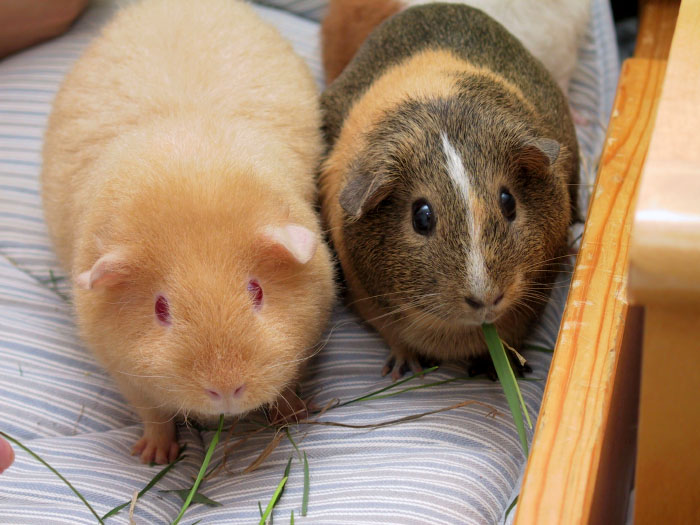Companion Companion
For time immemorial, people have been keeping animals as pets. While the choice of pet may differ by region and of course, by individual tastes, the reasoning for taking in a pet is typically similar, and often there’s some sense of companionship involved. In Western societies, the guinea pig is a common pet for this reason — they are low-upkeep animals which are docile, do not tend to stray from their cages (even if open), and as Wikipedia describes, “become amenable to being picked up and carried, and seldom bite or scratch.”
And that’s great for the human in the relationship — the guinea pig is there when the person needs a little bit of company. But what about the guinea pig’s feelings?
Switzerland was concerned about that question. So in 2008, they did something about it.

In June of that year, Veterinary Economics (a niche professional magazine) published a report of a new law in Switzerland, aiming at curbing animal abuse. The country took a broader-than-usual view of what constituted “abuse,” though: “Animals classified as ‘social species’ — such as guinea pigs and parrots — will be considered victims of abuse if they don’t live or interact regularly with others of their species,” per the magazine. Effectively, it became illegal to own just one guinea pig — by law, each guinea pig owner was required to provide his or her pet with a friend. (Or, at least, a housemate; there was no requirement that the two guinea pigs actually like each other.)
As Veterinary Economics further noted, there were not going to be door-to-door spot checks to make sure the pets had a bunkmate — Switzerland required “mandatory training” and hoped that public sentiment would help push others to comply. They were apparently correct. Public awareness of the rule was strong enough where a problem started to arise — guinea pigs, even though they’re a “social species,” don’t follow each other into death. (As an aside, contrary to popular belief, neither do lemmings.) When one guinea pig died, its owner would be stuck in an endless cycle, as Spiegel perfectly encapsulated in a 2011 report:
The owner would have to purchase a new, probably younger guinea pig as a companion to the aging survivor, whose eventual death would force the purchase of yet another guinea pig, locking the owner into an endless cycle of guinea pig purchases in order to adhere to Swiss law — even though he or she may only ever have wanted one guinea pig in the first place.
And nobody wants that.
But problems lend themselves to creative solutions, and the guinea pig one is no different. The Spiegel piece centered on the business of a then 41-year-old named Priska Kung, a self-described “animal lover,” who decided to rent out guinea pigs to owners who needed a companion for their companion. For about $50 or $60, Ms. Kung lends out a guinea pig for as long as the renter wished. When (if) the guinea pig is returned, the renter receives half of the fee back — think of it is a refundable deposit. Some rented-out guinea pigs were returned within a few weeks, while others never made the return trip home.
Ms. Kung’s business wasn’t a big money maker — she described it as a hobby — and, in fact, she claimed it cost her money in the end.
Bonus Fact: In a number of South American countries — particularly ones in the Andes Mountains — guinea pigs aren’t pets. They’re a delicacy, and are often served grilled, per this NPR report.
From the Archives: Until Death Do Us Reunite: A touching story of overcoming loneliness after death.
Related: A guinea pig playground — nine square feet!
